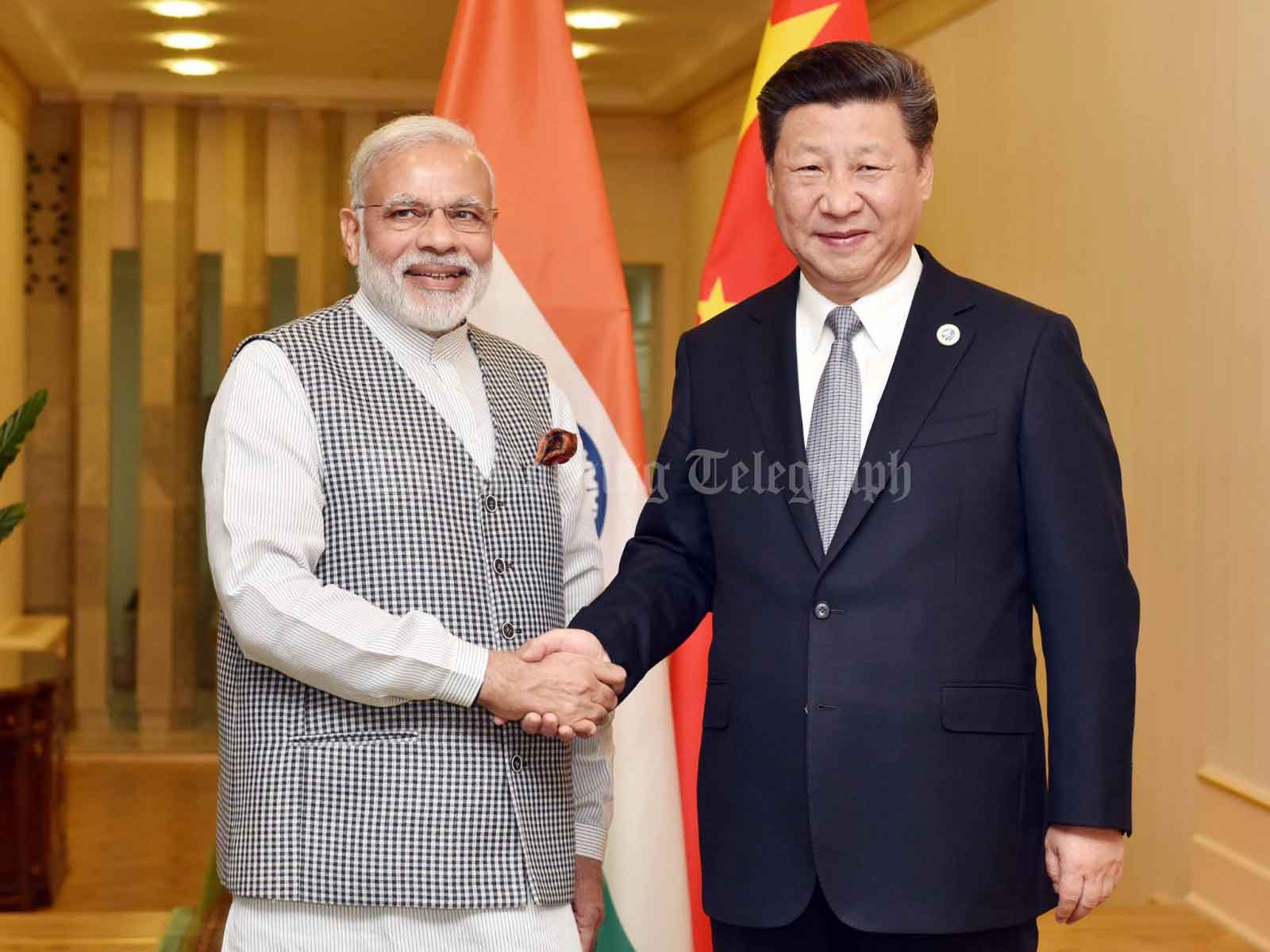
Prime Minister Narendra Modi and Chinese President Xi Jinping met for a significant bilateral discussion in Kazan, Russia, marking the first formal meeting between the two leaders since 2019. This dialogue took place on the sidelines of the BRICS Summit and came just days after a breakthrough in diplomatic and military negotiations to restore the patrolling status quo along the Line of Actual Control (LAC), which had been disrupted since the military standoff began in Ladakh in 2020.
The talks between the leaders highlighted a potential shift towards improved relations, following a consensus on patrolling arrangements along the LAC, where tensions had previously led to both nations deploying tens of thousands of troops. The progress in the patrolling agreement is seen as a move towards de-escalation, with the aim of resolving the issues that have persisted since the 2020 Galwan Valley clash.
PM Modi’s Remarks
During the meeting, Prime Minister Modi emphasized the importance of maintaining peace and stability along the border, underlining the need for “mutual trust, mutual respect, and mutual sensitivity” as the foundation for India-China relations. He welcomed the recent consensus reached on the border issues and stressed that both sides should prioritize the prevention of future conflicts.
Modi’s statement :
“Excellency, we welcome the consensus reached on the issues that have arisen in the last four years along the border. It should be our priority to ensure there is peace and stability along our border… Our talks will be constructive going forward.”
Xi Jinping’s Response
President Xi echoed the significance of the meeting, noting that it attracted attention not just within India and China, but also globally. He pointed out the importance of communication and cooperation, as well as addressing differences in a constructive manner. Xi highlighted the need for India and China, as major developing nations, to work together for the unity of the Global South and to promote multipolarity and democratization in international relations.
Xi Jinping’s remarks:
“It best serves the fundamental interest of our two countries… to have more communication and cooperation, properly handle our differences, and facilitate each other’s development aspirations.”
India-China relations have been strained since the 2020 standoff in Ladakh, which saw violent clashes in the Galwan Valley. This incident severely affected bilateral ties, resulting in heightened military deployments and stringent security measures on both sides. Additionally, there were disruptions in trade and travel, with direct flights halted and increased security checks for Chinese investments and personnel.
The meeting in Kazan follows brief interactions between Modi and Xi at the G20 summit in Bali in 2022 and the BRICS summit in Johannesburg in 2023, where the two leaders spoke but did not engage in detailed bilateral discussions. The recent talks have set the stage for a possible return to normalcy in trade, economic exchanges, and people-to-people contacts between the two countries.
The outcome of this meeting could play a crucial role in shaping the trajectory of India-China relations. If successful, it could pave the way for resuming direct flights, easing security measures, and normalizing economic ties. However, both sides remain cautious, as underlying border disputes and regional security concerns continue to present challenges.
The recent developments suggest a willingness from both nations to work towards stability and address longstanding issues. The dialogue in Kazan may mark the beginning of a gradual thaw in relations, with a focus on maintaining peace along the border and strengthening bilateral cooperation in various fields.




